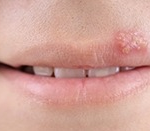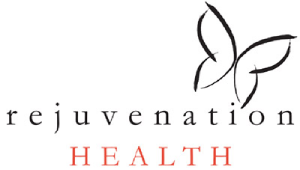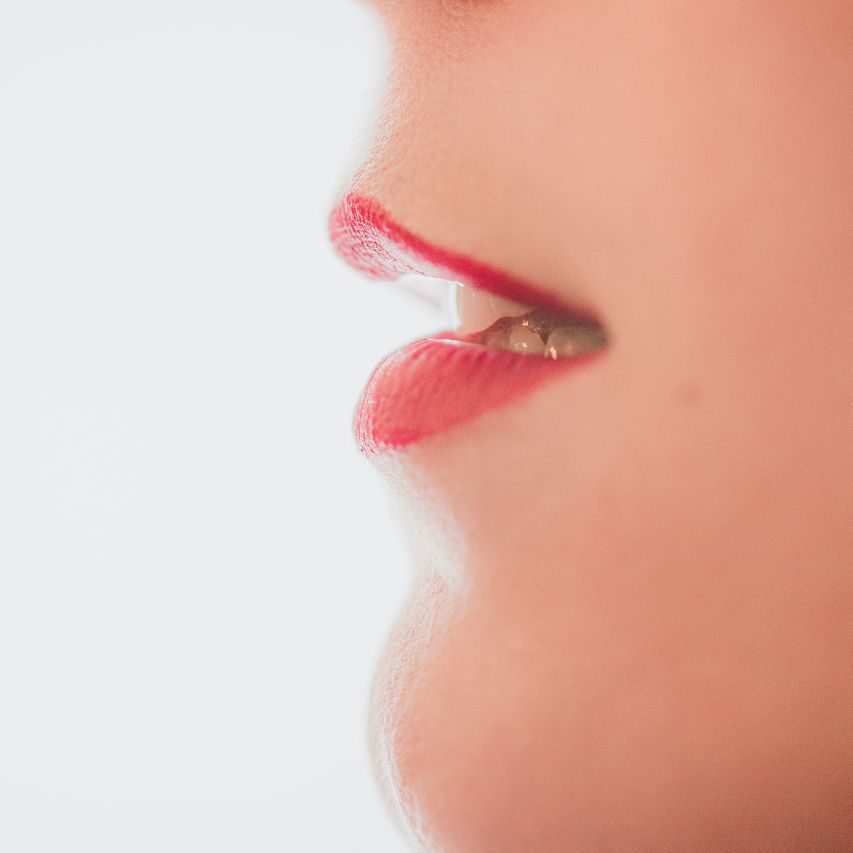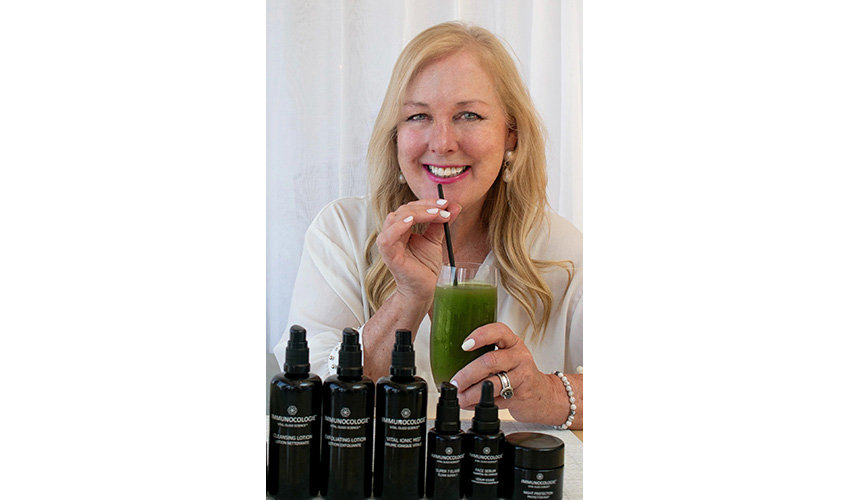Cold sores are contagious fever blisters that usually occur outside the mouth while canker sores are non-contagious blisters that happen inside the mouth.
To get rid of these sores, you must understand the difference. Keep reading for symptoms, causes, and treatments of both cold sores and canker sores.
To learn more about the connection between your oral health and your whole-body health, check out this important book: The Mouth-Body Connection by Dr. Gerald Curatola.
Is it a cold sore or a canker sore?
What is the difference between canker sores and cold sores? Cold sores and canker sores are both painful sores around your mouth. But there are key differences:
- Cold sores are contagious, fluid-filled blisters which may appear cloudy. They generally form outside of the mouth, on the lips.
- Canker sores are non-contagious, white/gray/yellow sores surrounded by inflammation, nearly always found inside the mouth.
What are Cold Sores?
Also called fever blisters or oral herpes, cold sores are contagious, painful, fluid-filled sores which generally occur on and around the lips.
Caused by the herpes simplex virus type 1, cold sores do not require treatment unless the pain or duration of the sores is severe.

Image courtesy of NIH.gov
Symptoms
The common symptoms of a cold sore outbreak include the following:
- Fluid-filled blisters may form along your lips. These blisters may erupt.
- Oozing, crusting, tingling, and itching may accompany cold sores.
- Healing time can take 7-14 days. Treatment may speed up that process.
Cold sores are a result of the herpes simplex virus, which doesn’t just cause blisters on your lip. Less common symptoms that may accompany a cold sore include:
- Fever
- Sore throat
- Bad breath (halitosis)
- Headache
- Muscle aching
- Swollen lymph nodes
- Inflamed gums
- More saliva than usual
- Dehydration
- Nausea
Children are more likely to get cold sores than adults. However, children who experience cold sores are more likely to experience recurrent infection in adulthood. Often, adults only experience cold sores when they contract the herpes simplex virus again.
Causes
Certain strains of the herpes simplex virus (HSV) cause cold sores. HSV-1 typically results in cold sores while HSV-2 typically leads to genital herpes. Either type may spread to the face or genitals.
The most common causes of catching the herpes simplex virus include:
- Close contact, such as kissing or oral sex
- Sharing eating utensils
- Sharing drinks
- Sharing towels
- Sharing razors
Here are the risk factors that increase your chance of catching HSV-1:
- Age of 3 years or younger
- Adults with multiple sexual partners
- HIV/AIDS
- Eczema
- Chemotherapy
- Compromised immune system
Once you’ve had an HSV infection, the virus may reemerge — usually as another cold sore at the same spot.
Recurring cold sores may be caused by:
- Fever
- Other viral infection
- Hormonal changes
- Skin injury
- Extreme stress
- Sun exposure (UV light)
- Medications which affect the immune system
Treatments
In most cases, cold sores do not require treatment to resolve within 2 weeks. However, there are treatment options to reduce symptoms or speed up the healing process.
Below are the most effective treatments for cold sores:
- Antiviral medications (such as acyclovir)
- Antibiotic ointment
- Pain relievers (over-the-counter or prescription)
- Baking soda mouth rinse
How Contagious is a Cold Sore?
Cold sores are contagious (unlike canker sores). From the time cold sores begin to form until they are completely healed, the blisters are contagious. Cold sores are infectious to the touch but also when you touch something that has been recently touched by a cold sore.
If the fluid within the sores oozes out, it’s even more contagious. The herpes simplex virus is highly communicable. Don’t share towels or drinks or eating utensils with anyone that may have a cold sore. Don’t engage in intimate physical contact with anyone who has a cold sore.
What are Canker Sores?
Canker sores are non-contagious sores that may appear white, gray, or yellow — surrounded by an area of red inflammation. Canker sores generally occur on the soft tissues inside your mouth.
Also known as aphthous ulcers, these inner mouth sores are fairly common. About 20% of U.S. children and adults have experienced a canker sore at least once in their lifetime.
There are 2 types of canker sores:
- Simple canker sores may appear 3-4 times a year, lasting up to a week. Also called minor canker sores, these blisters account for about 80% of all canker sores.
- Complex canker sores are less common but appear mostly in those who have already had canker sores in the past. These irregular sores appear more frequently in immunosuppressed individuals, and they may leave a scab or scar.
Symptoms
Here is a list of the symptoms of canker sores:
- Small, round, painful blisters can white, gray, or yellow with an inflamed red border.
- Canker sores are located inside the mouth (tongue, inside of lips, inner cheeks, etc.).
- Burning or tingling sensation may accompany blisters.
- Healing time takes 1-2 weeks (up to 6 weeks in severe cases).
- With complex canker sores, blisters may have irregular borders.
In severe cases of canker sores, you may also experience these symptoms:
- Fever
- Physical fatigue
- Swollen lymph nodes
Causes
The exact cause of canker sores is still unclear, or at least multifactorial.
However, below are the risk factors that seem to increase your chances of getting canker sores:
- Age (canker sores occur most often in teens and young adults)
- Sex (females experience canker sores more often than men)
- Chronic stress
- Injury to the inside of your mouth, such as biting your cheeks
- Acidic foods such as citrus or coffee
- Nutritional deficiencies (e.g., vitamin B-12, folic acid, zinc, etc.)
- Food allergies (e.g., coffee, gluten, eggs, nuts, spicy foods, etc.)
- Autoimmune disorders (e.g., lupus, celiac disease, IBD, HIV/AIDS, etc.)
- Helicobacter pylori (the bacteria that can result in peptic ulcers)
- Hormonal changes, such as during pregnancy or menstruation
- Dental appliances, such as ill-fitting braces or dentures
- Dental hygiene product ingredients (e.g., sodium lauryl sulfate or fluoride)
- Certain medications, such as ibuprofen
- Family medical history of canker sores, genetics
Is it possible to get a canker sore from kissing someone? No, canker sores are not contagious, so you can’t get canker sores by kissing someone. Unlike cold sores, canker sores are not associated with herpes simplex virus.
Treatments
Minor canker sores don’t typically require treatment. They usually clear up on their own in 1-2 weeks. However, you may want to take treatment to deal with particularly large, painful, or persistent canker sores.
Treatment options for canker sores include:
- Certain mouthwashes (at-home like baking soda or coconut oil, or prescription)
- Topical creams with active ingredients that may relieve pain or speed up healing
- Oral steroids
- Oral antibacterials
- Ozone treatments
- Nutritional supplements to address vitamin deficiencies
- Chemical cauterizing of cold sores with Debacterol or silver nitrate
Preventing Cold Sores and Canker Sores
Avoid both cold sores and canker sores with the following prevention methods:
- Keep your mouth area clean. Thoroughly wash around your lips every morning.
- Avoid physical stress and emotional stress.
- If you’ve had sores in the past, avoid triggers that may result in reemergence.
- If you already have a sore, don’t irritate it by touching it or playing with it.
Here’s how to specifically prevent cold sores:
- Avoid skin contact with anyone who has a cold sore, including kissing.
- Avoid sharing towels, eating utensils, or chapstick with others who may have cold sores.
- Use sunblock lip balm (SPF 15 or higher) to avoid ultraviolet sunlight triggering cold sores.
- If you have a cold sore, wash your hands before and after you touch your skin or others, especially younger children who are particularly susceptible.
Here’s how to specifically prevent canker sores:
- Avoid foods that irritate your oral cavity. Trigger foods may include foods you’re allergic to, certain spices, salty foods, and acidic citrus fruits.
- Get all your essential nutrients since nutritional deficiencies can lead to canker sores. Vitamin B12 and B9, zinc, and iron are common deficiencies that may cause sores.
- Protect your mouth if you have dental appliances like braces. Talk to your dentist about ways to prevent inner mouth irritation, including orthodontic wax to mask sharp edges.
- Take care of your oral hygiene. Regularly brush your teeth, floss, and swish with mouth rinse or coconut oil pulling. Use a soft-bristled, sonic toothbrush to remove bacterial plaque and prevent irritation.
- Avoid toothpaste that contains sodium lauryl sulfate (SLS). Opt for a probiotic toothpaste that replenishes the beneficial bacteria in your oral microbiome without irritating your mouth.
When To Seek Help
Cold sores and canker sores can be very inconvenient. If the symptoms don’t go away, or they’re especially impactful on your everyday life, you may need to seek help as soon as possible.
If you have cold sores, you should talk to your doctor right away if:
- You have a weakened immune system, such as if you have diabetes, HIV/AIDS, or have recently undergone chemotherapy.
- The cold sores don’t heal within 10-14 days.
- You keep experiencing cold sores every few months.
- The symptoms are severely impacting your work or personal life, such as an especially large sore or a very painful blister.
- Your eyes get irritated.
- You have swollen gums that are sensitive to touch.
- You think the blister is something more serious than a cold sore.
If you have canker sores, you should talk to your healthcare provider right away if:
- Your canker sores are unusually large.
- The canker sores don’t heal within 14 days.
- New canker sores are developing before the old ones heal.
- The blisters extend inside the mouth.
- The symptoms are severely impacting your work or personal life, such as an especially large or painful blister.
- You have trouble with eating or drinking.
- You experience a high fever.
If you want an oral health expert who will identify the root cause of your oral health conditions, schedule an appointment with Rejuvenation Dentistry today! We take a holistic approach to your dental health and overall wellbeing.




